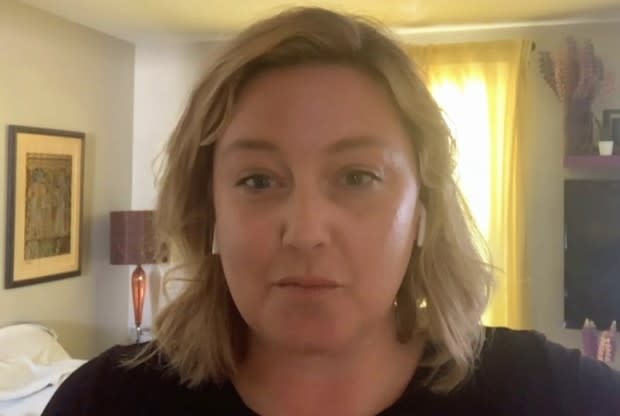Liberals rejected 1,000 voters in its leadership race. One of them is questioning why

Some people registered to vote in Newfoundland and Labrador's Liberal Party leadership race are being ousted from the process, and left questioning the party's reasoning why.
Among the rejected is Robyn LeGrow of St. John's, who two weeks ago posted on her personal Facebook account a critique of candidate Andrew Furey's campaign policies.
"I can only assume that that is why I have been disqualified. I had no idea when I put that post out on my personal page, to my personal friends, that it would get as much attention as it has," LeGrow told CBC News on Wednesday.
The party is informing the former voters via email.
"We want to thank you for your interest in the Liberal Party and this election. However, our records indicate that you do not support the aims and objectives of the Liberal Party of NL. As a result, you have been found ineligible to vote," reads an email written by Lewis Stoyles, chief returning officer of the Liberal Party of Newfoundland and Labrador leadership election.
The upcoming party vote will elect its next leader — and the province's next premier — on Aug. 3 ahead of a provincial general election which will be called within the next year.
LeGrow took to Twitter Wednesday morning with her concerns, with many people commenting that they, too, have received rejection notices.
Emails being sent to rejected voters include an opt-in review process by the party.
"If our records are incorrect or you wish to have this decision reviewed, please respond to this email by 9:00 PM (NST) on July 8, 2020," the email from Stoyles reads.
That leaves many, including LeGrow, with less than 12 hours before the deadline for appeal closes.
Chance to appeal
An appeals process will continue throughout the rest of the week, according to Judy Morrow, a member of the leadership election committee and past president of the Liberal Party in Newfoundland and Labrador.
The first part of the appeals involves asking Stoyles to review the decision that rendered the voter ineligible. If the voter is not satisfied, then they have an opportunity to make an appeal to the party's appeals committee, which was put in place in February.
The party plans to have a finalized list of voters by July 14, with voting starting on July 28.
LeGrow is taking the party up on its appeals offer, and says she has notified them she'll be pursuing it.
"My concern is that communications all along haven't been consistent," she said.
"It seems to me that they are creating the rules as they go, making decisions and then responding to them based on feedback from people who are on the other end of those decisions."
Liberal explanation
On Wednesday afternoon, the Liberal Party held a virtual news conference for an update on the election process.
Since voter registration closed on June 25, the election committee has been going through what its calling a "multi-faceted vetting process." That included calls and email blasts to verify and authenticate registered voters, and was partnered with a research company.
As of Wednesday roughly 33,500 voters have been designated eligible, according to Morrow, who took questions from reporters.

When asked if the vetting process included the research company combing through social media accounts of registered voters to find past comments which could find them in the ineligible category, Morrow said no.
"They were just given pure lists from our Liberal list database," she said.
Morrow said anyone who signed up with the party to vote for its leadership, and in a follow up robocall said they would vote for any other party, were automatically disqualified from voting.
Anyone who said they didn't support the aims of objectives of the Liberal Party were also disqualified. Those categories added up to about 300 people.
There were about 1,000 ineligible voters total, Morrow said.
"They were for various reasons. That could be because their date of birth was missing, or they didn't have an email or telephone number, or they were no longer a resident of the province," she said.
"We found some individuals who had been deceased. There were different reasons for knockouts."
Read more articles from CBC Newfoundland and Labrador


